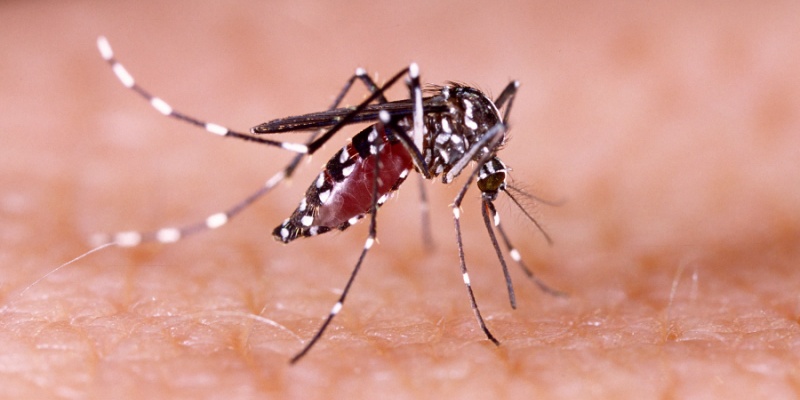Understanding the dangers associated with mosquito bites is crucial for taking proactive measures to protect yourself and your loved ones. In this blog, we’ll explore the various health risks posed by mosquitoes, the diseases they can transmit, and the importance of effective mosquito control in safeguarding public health.
Why Mosquitoes Are a Health Concern
Mosquitoes are known vectors for numerous diseases, making them one of the most dangerous insects globally. Their ability to transmit pathogens from one host to another through their bites makes them a public health concern that requires attention and proactive management.
Diseases Transmitted by Mosquitoes
1. West Nile Virus (WNV)
- Overview:
West Nile Virus is a mosquito-borne illness that primarily affects the nervous system.
- Transmission:
Mosquitoes become infected when they feed on infected birds and then transmit the virus to humans and other animals through their bites.
- Symptoms:
Most people infected with WNV experience mild symptoms such as fever, headache, and body aches. However, severe cases can lead to neurological complications like meningitis or encephalitis, which can be fatal.
2. Eastern Equine Encephalitis (EEE)
- Overview:
EEE is a rare but severe viral disease transmitted by mosquitoes.
- Transmission:
The virus is primarily spread by the Culiseta melanura mosquito species, which feeds on birds and can transmit the virus to humans and horses.
- Symptoms:
Initial symptoms include high fever, headache, vomiting, and weakness. Severe cases can result in brain inflammation, leading to coma or death.
3. Zika Virus
- Overview:
Zika Virus gained widespread attention due to its association with birth defects when pregnant women are infected.
- Transmission:
Primarily spread by Aedes mosquitoes, particularly Aedes aegypti and Aedes albopictus.
- Symptoms:
Symptoms are generally mild and include fever, rash, joint pain, and conjunctivitis. However, Zika infection during pregnancy can cause severe birth defects such as microcephaly.
4. Dengue Fever
- Overview:
Dengue Fever is a mosquito-borne tropical disease caused by the dengue virus.
- Transmission:
Spread primarily by Aedes aegypti mosquitoes.
- Symptoms:
High fever, severe headache, pain behind the eyes, joint and muscle pain, rash, and mild bleeding (such as nose or gum bleed). Severe dengue can lead to dengue hemorrhagic fever, which is life-threatening.
5. Malaria
- Overview:
Although not common in the United States, malaria is a serious mosquito-borne disease caused by Plasmodium parasites.
- Transmission:
Spread through the bites of infected Anopheles mosquitoes.
- Symptoms:
Fever, chills, sweats, headaches, nausea, and vomiting. Severe cases can cause anemia, respiratory distress, or organ failure.
Vulnerable Populations
Certain groups are more susceptible to mosquito-borne diseases:
- Children and Elderly:
Weakened immune systems make children and the elderly more vulnerable to severe infections.
- Pregnant Women:
Zika Virus poses significant risks to pregnant women, potentially causing severe birth defects.
- Individuals with Compromised Immune Systems:
People with weakened immune systems due to illnesses or medications are at higher risk of severe complications from mosquito-borne diseases.
Mosquitoes pose significant health risks, including the transmission of various dangerous diseases. Understanding the dangers associated with mosquito bites and implementing effective preventive measures is crucial for protecting yourself. For expert mosquito control solutions tailored to Reynoldsburg’s unique environment, contact Weed Busters today and enjoy a mosquito-free outdoor space.

